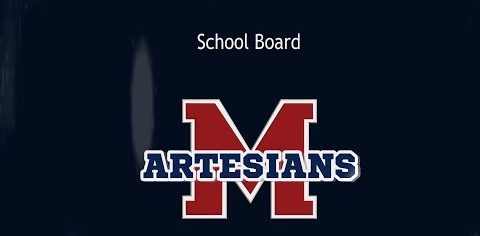Transgender lawsuit leads to ongoing challenge by MSD
MARTINSVILLE — After the U.S. Court of Appeals rejected its petition in August to overturn a lower court’s ruling, the Metropolitan School District of Martinsville may now be headed to the highest court in the land.
In its Aug. 1 ruling, the appellate court for the Seventh Circuit acknowledged the contentiousness of the issue, opting not to overturn the U.S. District Court ruling and instead, hoping the Supreme Court of the United States will settle the matter.
“Litigation over transgender rights is occurring all over the country, and we assume that at some point, the Supreme Court will step in with more guidance than it has furnished so far,” Circuit Judge Diane Wood wrote in the official ruling.
On Aug. 17, the MSD school board voted unanimously to challenge the appellate court ruling when it passed a resolution that authorizes the law firm of Bose McKinney and Evans “to appeal the decision of the Seventh Circuit to the Unites States Supreme Court.”
“The MSD of Martinsville School Board of Trustees chose to appeal the Seventh Circuit ruling because there is disagreement among federal courts around the country on whether federal law mandates certain actions or whether schoolboards have discretion to enact policies addressing who may use what facilities,” school board president Jacque Deckard said in an emailed statement.
Case history
The case against the school district goes back to December 2021, when a lawsuit was filed by the American Civil Liberties Union and Indiana Legal Services on behalf of a seventh-grade student at John R. Wooden Middle School — who was born a female but identifies as a male — and the student’s mother.
According to the complaint, the student was in fifth grade when “he indicated to his family that he was not female and asked that he be addressed by a male first name and with male pronouns or ‘they.’”
Later that same academic year, the student moved from Anderson to Martinsville, and the complaint alleges the staff at Bell Intermediate used female pronouns for the student despite a request by the student’s mother that male pronouns be used.
“He knows himself, and continues to know himself, as male,” the complaint states.
The student also asked to use the boys restroom at Bell but was allegedly told to use the girls restroom or the single-person restroom in the health clinic.
According to the complaint, the student used the clinic restroom for the remainder of fifth and all of sixth grade.
By seventh grade, the student was at John R. Wooden Middle School, and continued to use the single-person restroom in the school’s clinic. But according to the complaint, that scenario started to become “problematic” since it was far away from the student’s classes and resulted in tardy arrivals for the next class.
“Moreover, as he has gotten older and more secure with asserting his identity as a boy, he has become increasingly disturbed about having to use the clinic restroom and not being able to use the boys restrooms like all the other boys in the school. He feels that he is being singled out and that he is not accepted for who he is,” the complaint contends. “This has caused him anxiety and unhappiness.”
According to the complaint, the student’s stress was made worse by “a number of (teachers)” who continued to refer to the student by female pronouns.
By September 2021, the student was allegedly receiving treatment at Riley Hospital in Indianapolis for gender dysphoria, including medication to prevent menstruation. And the student’s mother had initiated an effort to get the student’s name and “gender marker” legally changed in a local court.
By October, the student’s mother elicited the help of Gender Nexus, “an organization for transgender and nonbinary persons,” which initiated a meeting Nov. 3 with the school, during which the group insisted the student “had the right to use the restroom that aligned with his gender identity.” The student also asked to play boys soccer the following school year.
According to the complaint, the school principal, Fred Kutruff, said the student would need to continue to use the clinic restroom with extra time given. In addition, Kutruff said the school would not allow the student to play on the boys soccer team, per Indiana High School Athletic Association rules.
After the Nov. 3 meeting, the student began using the boys restroom anyway.
Later that month, the student was seen using the boys restroom, so Kutruff called the student into his office a week later and instructed the student to use the nurse’s office restroom or the girls restroom.
By December 2021, the lawsuit was filed, claiming the student was caused “psychological stress and … continuing depression, anxiety, mental distress and other injuries.”
Suit claims
According to the complaint, the middle school failed to accommodate the student’s male gender identity by not allowing the student to use the boys restroom, join the boys soccer team or address the student using male pronouns.
The suit claims the school violated Title IX, which prohibits sexbased discrimination in education and was enacted in 1972, spearheaded by U.S. Sen. Birch Bayh of Indiana.
At the time, Bath explained the legislation was put forth to fight against “the continuation of corrosive and unjustified discrimination against women in the American educational system.
”In recent years, however, proponents of the transgender movement have used Title IX to argue that transgender students should be covered under those same protections based on their identified gender, not necessarily their biological sex.
The school district, however, argues that Title IX is, in fact, based on a biological understanding — or “the genetic sense” — of two genders due to the common understanding and application at the time Title IX was made into law.
What’s more, the school district contends that “school boards — locally elected representatives of our communities — should be afforded discretion in making these decisions,” it stated in its Aug. 17 resolution.
The 2021 suit also claims the school district violated the Equal Protections Clause of the Fourteenth Amendment. First ratified in 1868 on the heels of the Civil War and traditionally used to prevent racial discrimination, the Equal Protections Clause is now often used in gender-based cases.
Court rulings
On April 29, 2022, the U.S. District Court for the Southern District of Indiana issued its preliminary injunction, ruling in favor of the student and the student’s mother while denying the school district’s defense and ordering the district to allow the student “use of the male restrooms and … treat him as a male student in all respects.”
On May 3, 2022, the school district filed a notice of appeal, leading to oral arguments in front of the U.S. Court of Appeals for the Seventh Circuit on Feb. 15, 2023.
By Aug. 1, 2023, the appellate court issued its ruling, unwilling to overturn the District Court ruling. About two weeks later, the school district passed its resolution challenging the ruling, and willing to take it to the highest court in the country if necessary.
“This is a matter of local autonomy that requires the U.S. Supreme Court to resolve a disagreement among federal courts,” Deckard said in the statement. “The education system is constantly evolving – and at a rapid pace. School boards must be empowered with the ability to navigate emerging issues with discretion to serve the best interests of students.”
What now
After the appellate court’s decision in August, Indiana Attorney General Todd Rokita came out in support of the school district’s challenge.
“Nothing in the U.S. Constitution, Title IX or any other federal law requires schools to have coed bathrooms, locker rooms or showers, which pose a direct threat to the health, privacy, safety and security of our children,” he said in a statement in August. “Accordingly, federal courts should never mandate that boys and girls must be able to use the same school bathrooms depending on gender identity.”
He applauded the school district’s decision to appeal, particularly given the opposing conclusion reached by the Eleventh Circuit Court.
“There’s already a Circuit Court split,” explained Corinne Youngs, the policy director and legislative counsel for the Indiana Attorney General’s Office. “So this is something the Supreme Court needs to take up.”
Whether the Supreme Court does or not remains in question. “Having a Circuit split certainly helps,” said Youngs, adding that there’s “really no way to predict what the Supreme Court will do. They do things in their own timing.”
The Supreme Court began hearing cases Monday of this week, but it’s anybody’s guess which cases they may bring before the court. “They conference every week to vote whether they take a case,” Youngs said. “And sometimes, they conference for many weeks on the same case … so it could be a long process.”
If they do agree to take a case, the court’s rulings often come many months — typically the following June — after oral arguments.
For its part, the Metropolitan School District of Martinsville hopes to have its day in court.
“The Seventh Circuit Court noted in their opinion that the U.S. Supreme Court should weigh in to resolve the conflict,” Deckard wrote. “It is vital that the District receives clear, decisive guidance from the highest court in the land before it knows how to proceed forward.”
A phone conference with the district court judge is set for Nov. 14 for both sides of the suit to discuss the status of the case.
~ By Stephen Crane | Reporter | Published October 5, 2023 in The Morgan County Correspondent



